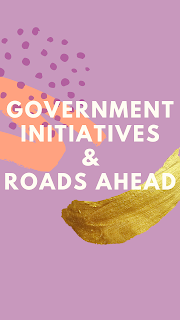...continued
By, S Adeeb Mujtaba Ali
Major Initiatives are taken up by government:
November 2020: The Indian Central Medicine Council (CCIM), which governs medical study and practice of Ayurveda, amended the 2016 regulations of the Indian Medicine Central Council (postgraduate Ayurveda education) to allow Ayurveda PG students to practise general surgery.
Two future-ready Ayurveda institutions—the Institute of Teaching & Research in Ayurveda (ITRA), Jamnagar, and the National Institute of Ayurveda (NIA), Jaipur, were dedicated by our Prime Minister, Mr Narendra Modi to forge interdisciplinary collaborations and give a contemporary boost to Ayurveda.
Digital Skills Academy, by IIT Madras, launched training courses for banking, financial services and insurance sector.
All India Council of Technical Education (AICTE) inaugured 46 online AICTE training and learning (ATAL) academy faculty development programmes (FDPs) on ‘molecular manufacturing’ in a drive to develop and train its faculty worldwide.
Prasar Bharati (India’s public broadcaster) entered into an MoU with the Ministry of Electronics and Information Technology to launch 51 direct-to-home (DTH) education TV channels.
Government allocated Rs. 59,845 crore (US$ 8.56 billion) for the Department of School Education and Literacy.According to Union Budget 2020-21
Announcement of revitalising Infrastructure and Systems in Education (RISE) by 2022 in Union Budget 2020-21 and proposed an outlay of Rs. 3,000 crore (US$ 429.55 million).
Under Union Budget 2020-21, apprenticeship embedded degree/diploma courses by March 2021 in about 150 higher educational institutions proposed by the government.
In 2030, it is estimated that India’s higher education will:
Combine training methods that involve online learning and games, and is expected to grow 38% in the next 2-4 years.
-Adopt transformative and innovative approaches in Higher education.
-Have an augmented Gross Enrolment Ratio (GER) of 50%.
-Reduce state-wise, gender-based, and social disparity in GER to 5%.
-Emerge as the single largest provider of global talent with one in four graduates in the world is a product of the Indian higher education system.
-Be among the top five countries in the world in terms of research output with an annual R&D spend of US$ 140 billion.
-Have more than 20 universities among the global top 200 universities.
Besides focusing on new education techniques, such as E-learning and M-learning. Various government initiatives are being adopted to boost the growth of the distance education market
Education sector has seen a host of reform and improved financial outlays in recent years that could possibly transform the country into a knowledge haven. In the current decade, the development of education infrastructure is expected to remain the key focus. In this scenario, infrastructure investment in the education sector is likely to see a considerable increase. With human resource increasingly gaining significance in the overall development of the country
The Government of India has taken up several steps like opening of IIT’s and IIM’s at new locations, allocating educational grants for research scholars in government institutions. Furthermore, with the online mode of education being used by several educational organizations, the higher education sector in India is set for major change and development in the years to come.
#sti
Reference:
Education & Training Sector in India: Education System, Growth & Market Size | IBEF


Comments
Post a Comment
Share your views about the blog